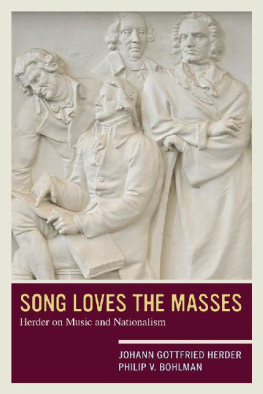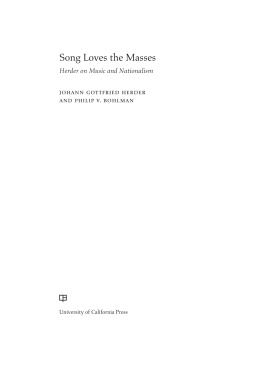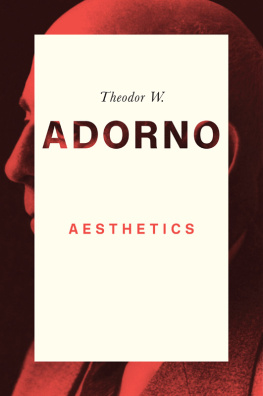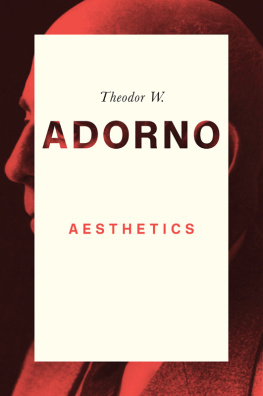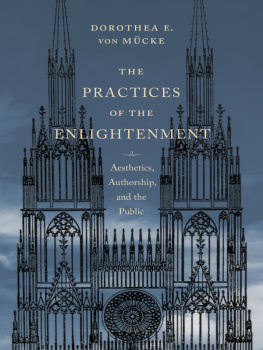Is the Beauty of the Body a Herald of the Beauty of the Soul?
In the countenance dwells the spirit! This maxim has been in currency since the earliest times; even today it is the basis of our judgments in our daily commerce with others, and only those on whom Nature herself has bestowed a repugnant form seem to doubt it. For that reason we consider their objections biased and stick with the tenet to which we subscribed: in the countenance dwells the spirit!
If this rule is universally true, then surely Mother Nature can have given us no better letter of recommendation to our fellow men than a favorable facebut on the other hand wretched are we indeed if an unfavorable physique means that we must not only forgo the consolation of seeking redress in our soul but also arouse the general suspicion that our spirit is worth nothing or our heart is bad. Why? Because our body, the dwelling place of the soul, is so unalluring.
Those whose bodies have been ennobled by Nature will then triumph; to become acquainted with the most beautiful spirit one must make the acquaintance of the most beautiful body; you will never go astray if you allow yourself to be guided by this visible sign of the spirit, this eloquent witness. But for those who arrived too late when Nature was handing out well-proportioned limbs, there is no choice but to do as the Spartans did with their ugly and feeble infants and throw themselves into the river; let them then go to a hospital or to Charons skiff or return to their mothers womb to be born again.
Therefore I think it not entirely without purpose to throw some light on this maxim which so often guides our judgments and to gather some observations, deductions, and examples with respect to the question, isthe beauty of the body a herald of the beauty of the soul? I think this treatise will appeal to many readers: the beautiful will read me because they expect a flattering yes in answer to this question; the ugly will do so because they anticipate consolation and an edifying no! But only those who are neither beautiful nor ugly, or at least who do not make much of either quality, can be my impartial judges. To the last category few members of the fair sex are apt to belong, then, if indeed Gellert, that great poet of women, is correct when he says:
dass es beinah kein Mdchen gibt
die nicht den Putz und ihr Gesichtgen liebt.
Nevertheless, I shall submit to the opinion of these partial judgesses with such respect for the name the fair sex that I might almost be inclined to underwrite the proposition the beauty of the body is certainly an infallible herald of the beauty of the soul! with willing hand and yet more willing heart simply to please them. But unfortunately I recall that a judge and a philosopher ought to be incorrupt and impartial, or at least should pretend to be so; so I shall furrow my brow, adopt a serious expression, and begin my inquiry.
The ancients, especially the ancient Greeks, laid such value on the noble form of the body that their philosophers, among whom I shall single out Socrates and his pupils Plato and Xenophon, declared it to be a symbol of divine qualities and the footprint of the gods. In Plato we find a discussion about beauty between Socrates and a young Athenian, Phaedrus, where the proposition that the beauty of the body is a herald of the beauty of the spirits is defended with such noble simplicity that Socrates seems to me still an amiable sage.
Let us hear how Plato addresses the question I am treating here: our souls, he says, have been sent from the realm of the gods down to earth, either as reward for the virtue they have practiced in a former life or as punishment for their vices. Their fate in this world is determined accordingly. A beautiful soul is assigned to the womb of a blooming mother; here the soul fashions for itself a body from the most delicate blood, and the beauty of this frame shall be its glory, its agreeable home, the instrument with which it works with blissful serenity, and the mirror wherein its beauty is revealed. An evil soul, however, is given to the womb of a vicious mother; its body shall be a gloomy dungeon and its countenance the mirror wherein the black disposition of the spirit is reflected.
What Plato claims he may well prove. Yet when I, who unfortunately do not possess sufficient power of memory to recall how my soul came to inhabit my body, lay bare this pretty fable, I discover in it the kernel of the following truth, one that is very much pertinent to my proposition: In our mothers womb the constitution of our bodies as well as of our spirit is given form. It is here, then, that our explanation must begin.
It is a fact known only too well that in their blood parents pass on their physical and mental constitution through a number of traits. Just as we sometimes think we can recognize almost entire families by their face and temperament when we are acquainted with but three of their members, so it is even better known that children carry the spirit and physical character of their parents mostly in their eyes, in their brow, and in their face.
Just as we therefore raise, preserve, and propagate breeds and races of noble and at the same time beautiful animals, and particularly by keeping them for the purposes of crossbreeding, so too the beautiful and noble blood linking human generations might be preserved and passed on. Have there ever existed peoples among whom nobility of the spirit and beauty of the body were almost so widespread a mark of their character that it set them apart from other nations? And are there indeed peoples among whom beauty and ugliness are not uncommon because one of these qualities is universal? If I am not mistaken, I have encountered this conceit in Montesquieu, Montaigne and Beaumelle, where it is given new and further turns.
At this juncture I ought to address the questions debated by the philosophers: Does our soul propagate itself at the same time as the body, like a grapevine? How does one part operate on the other? And so on. But since these questions still number among the mysteries and are only obliquely related to my purpose, then should my path touch them, I shall leave it to each of my readers to fill this gap in his thoughts by himself. I, however, shall carry on my way.
In the mothers womb the development of the body and soul both depend on the same things, coincidences, often trifles, and they will therefore inevitably come to resemble each other. The same passion that causes the mothers blood to be in a state of ferment and disorder makes the infants body unhealthy and imparts to the spirit a character trait that subsequently determines a great deal in his nature. I intend here to refer to individual cases, cases that we now remark upon all too rarely, however, because in our age the common character of our constitution is frailty, frailty of body and frailty of soul. The same great passions, which in their utmost degree are productive of monstrosities, cause, in more modest measure, the irregular developments that in the soul and in the body almost always run parallel with one another.
If, however, the human body reaches maturity without a tempest of passion and without debilitating congestion of the blood flow, then the soul, which inhabits this unconfined dwelling place and develops accordingly, has the room to extend itself upward and in all directions. And calmly and freely it rouses itself from the slumber of its previous state to experience the first gentle sensations that naturally determine many episodes of its new life.
The ancient Lacedaemonians cast their feeble children away because they reasoned that the children possessed equally feeble souls, just as the sick man is always fainthearted and the generous man healthy, even in his dying moments. Doubtless the Lacedaemonians acted wrongly, even in political terms, but their error can at least be
Next page

